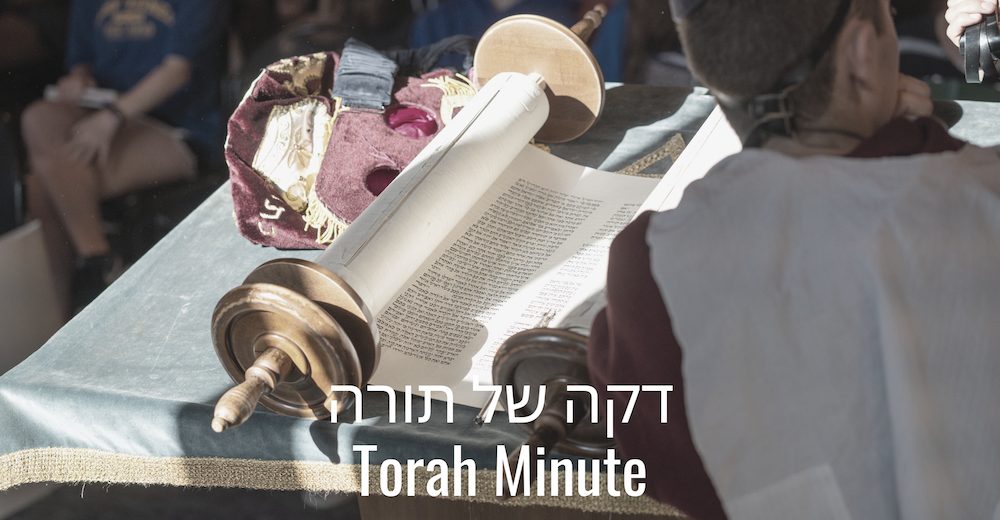Is it the Thought that Counts?
This week’s parsha finds the Jewish people after receiving the Ten Commandments on Har Sinai. Moshe had ascended to the mountain and the people are waiting below, for 40 days and nights. The days are ticking by and the people, who have never been without Moshe’s leadership since leaving Egypt, are anxious. They don’t know what’s going on, or that Moshe is receiving the tablets. They just know that they’ve been waiting and waiting.
The people start to panic. They are alone in the desert, a nation of recently-emancipated enslaved people. In lieu of a leader, they feel totally vulnerable. They need some connection to know that God is still there. They revert to the only way they’ve known to connect to God up until that point: an intermediary. Not Moshe, but one they can create themselves. They approach Aharon and ask him to make “an elokim.” We know how the story ends: with the sin of the golden calf. Moshe comes down from the mountain and sees the people worshipping the calf, smashes the tablets, and then turns around and goes back up the mountain. He spends another 40 days and nights pleading with God to forgive the people, which only occurs after mass punishment and a second set of tablets being inscribed. It’s a painful chasm between God and the nascent Jewish people that impacts their dynamic for a generation.
What was Aharon’s role in all this? He was Moshe’s lieutenant, the second-in-command. He was also the Kohen Gadol. One would think he would have impeccable judgment. But he responds to the people’s request to make an idol by suggesting a plan for them! Inexplicably, Aharon tells the people to bring the women’s gold jewelry to him to make the golden calf. (according to rabbinic commentaries, the women refused, forcing the men to bring their own gold). How could Aharon assent to the people’s at best misguided, at worst sacrilegious demand? How can we understand this?
Rashi says that when Aharon told the men to collect gold jewelry from their wives, he was assuming that the women would not willingly hand them over, thus buying some time until Moshe’s return. The commentator Da’at Mikra says that Aharon was trying to allow for the people to change their minds on their own. While he may have provided practical help, he never endorsed the idea of creating the calf. Much as parents do with tantruming children, Aharon redirected the people toward getting the jewelry, thinking it would take a long time in which they would reconsider their awful plot. Aharon knew that the women’s jewelry itself came from Egypt, and hoped that it would remind the men of God’s miracles on their behalf, dissuading them from committing the egregious sin they were planning.
While Aharon turned out to be wrong in this case, God does not punish him. How can we understand this? Aharon is described in the Mishnah by Hillel as being a “Rodef Shalom,” a pursuer of peace, always seeking to make peace between people. As a spiritual leader, not a political one, Aharon had a natural proclivity to see the deepest good in every person.
While this made him a perfect Kohen Gadol, guiding the people in bringing offerings to be close to God, this did not necessarily make him a perfect substitute for Moshe guiding the people in making the right choices.
Aharon was not punished because his intentions were pure. He assumed the best in the people at all times — that the men were desperate, that they would soon see the wrongness of their actions if he just bought some time, that the women would refuse to comply (in this he was right!). God appreciated that Aharon humbly considered the people’s motivations and assumed the best in them. In fact, only a minority of the people were punished because of course God understood the pain and fear that motivated the people’s choices. The greater lesson for us today is 1. Judge others with the benefit of the doubt, as Aharon did, and 2. On the flipside, to make sure that our own actions are worthy of the benefit of the doubt from others. The thought really does count, but so do the actions.
Questions for the Shabbat table:
- Can you think of any other motivations that Aharan could have had for helping the Israelites build the golden calf?
- Can you think of a time when you felt you were treated wrongly based on your actions, because people didn’t understand your motivation? What do you wish they would have understood?




